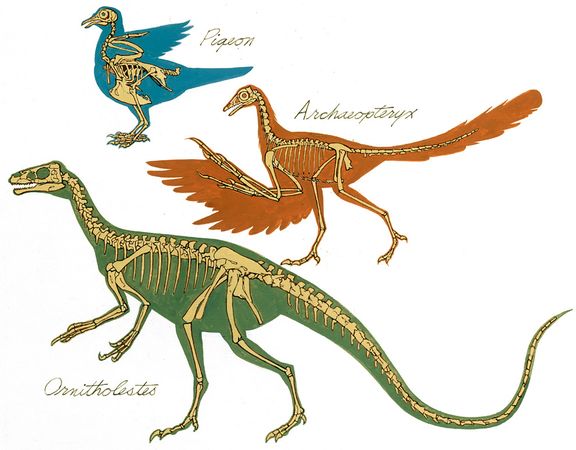 Last time, c. 1998-2001, I was a social trinitarian along the lines of Richard Swinburne. While I was on the job market in 1999-2000, my former professor Stephen T. Davis was kind enough to invite me and a friend to attend the Incarnation summit, a follow up to the earlier interdisciplinary Trinity Summit. This was a great privilege, and I pretty much just observed. But I remember thinking about the Trinty there, scribbling notes and logical formulas on paper as I sat through long sessions, even passing a few to Dan Howard-Snyder, who I first met there, and instantly liked.
Last time, c. 1998-2001, I was a social trinitarian along the lines of Richard Swinburne. While I was on the job market in 1999-2000, my former professor Stephen T. Davis was kind enough to invite me and a friend to attend the Incarnation summit, a follow up to the earlier interdisciplinary Trinity Summit. This was a great privilege, and I pretty much just observed. But I remember thinking about the Trinty there, scribbling notes and logical formulas on paper as I sat through long sessions, even passing a few to Dan Howard-Snyder, who I first met there, and instantly liked.
Thanks be to God, later in the Spring of 2000, I was hired for a tenure track teaching job. I paid my dues prepping numerous classes, bought a more serious winter jacket, and really learned how to shovel snow. And in 2001, our first child was born, a son.
In the Spring of 2001, I wrote the first version of what eventually became my “Unfinished Business” paper, and presented it at a Society of Christian Philosophers meeting in Rochester, NY. I must have sent this at some point to my friend Dr. Davis, because later in the Spring I received an unexpected email from Richard Swinburne saying he’d been told I had a good paper on the Trinity, and asking me if I wanted to attend an SCP conference in, of all places, Moscow, Russia! My paper was a bit… un-Orthodox. (Short summary: social theories don’t work, “Latin” theories don’t work… What gives?) Even the old Russian ladies who translated my paper into Russian said, “Duh, it’s a mystery!”, so I decided I needed to think more about that. Why not say “It’s just a mystery” and cease looking for an understandable, seemingly consistent way to understand the Trinity?
At the end of “Unfinished Business” I allude to a theory that I take to be a neglected, but arguably orthodox Trinity theory. I had in mind a view like Clarke’s (who I discussed briefly last time). But that didn’t work out – more on that time after next. In short, I realized that it’s not a properly trinitarian theory.
 In Russia I had a few interesting conversations with Swinburne. In one, standing in Red Square, not far from Lenin’s tomb and the Kremlin, I objected that if he was right, then God would have deceived the Jews. He replied that evidently, I hadn’t read his book Revelation. He was right. I admitted that I had the book on my shelf, but hadn’t read it. I later did. It’s now in a 2nd edition, and I must say that I don’t entirely know what I think about it.
In Russia I had a few interesting conversations with Swinburne. In one, standing in Red Square, not far from Lenin’s tomb and the Kremlin, I objected that if he was right, then God would have deceived the Jews. He replied that evidently, I hadn’t read his book Revelation. He was right. I admitted that I had the book on my shelf, but hadn’t read it. I later did. It’s now in a 2nd edition, and I must say that I don’t entirely know what I think about it.
But regarding the OT, his view is that the meaning of a text is context relative. The Church having accepted the old Jewish scriptures into its canon, for the Church, those books mean what they were understood to mean upon being accepted.
His favorite example, which he told me then, and which I’ve heard him give since, is:
O Daughter of Babylon, doomed to destruction, happy is he who repays you for what you have done to us – he who seizes your infants and dashes them against the rocks. (Ps 137:8-9, NIV)
For the Church, he says, this means that we should mercilessly kill off our sins or bad habits, or something like that. It is irrelevant, he argues, what the author may have meant when he wrote it.
 I can’t bring myself to agree with this. But even granting this, I couldn’t see how it should soothe my worry, which was that in the OT, God revealed himself to be a uniquely great and good god, a self. And if social theorists are right, this was evidently a lie, told by three co-equal, always co-operating divine selves. What the Jews thought was a god, was really a tightly knit group or compound object, composed of divine selves, which is to say, gods.
I can’t bring myself to agree with this. But even granting this, I couldn’t see how it should soothe my worry, which was that in the OT, God revealed himself to be a uniquely great and good god, a self. And if social theorists are right, this was evidently a lie, told by three co-equal, always co-operating divine selves. What the Jews thought was a god, was really a tightly knit group or compound object, composed of divine selves, which is to say, gods.
I don’t think all lies are wrong (“Yes ma’am, I do think your daughter makes a lovely bride.”) – but this one appears to be wrong. But divine selves don’t do wrong. So, the social Trinity theory is false; three divine selves didn’t pass themselves off as the one, uniquely great divine self. I wrote this up in a paper, which was published in 2004 in the journal Religious Studies. But in my mind the really important part of the paper was the latter portion (pp. 25ff), which points out that in the New Testament, the one God is identified as being the Father himself, not as the Trinity. It was Clarke, initially, who helped me to see this, but now I was seeing this this is everywhere presupposed in the NT, and sometimes asserted.
Also, when I really dug hard into the Bible, I couldn’t find this wonderful fellowship, this quasi-family, this eternal “dance” of three of divine persons there. This mythical fellowship is a centerpiece of “social” trinitarian preaching, but it’s certainly not taught outright anywhere in the Bible, and I came eventually to think that it isn’t implied there either.
It’s easy to get off track on this point, because the personal relationship between Father and Son is a central theme of all the four gospels. Conspicuously absent are any portrayal of friendship with the Holy Spirit, and the idea that God just is this perfect community or fellowship. This statement by John is telling in what it leaves out:
We proclaim to you what we have seen and heard, so that you also may have fellowship with us. And our fellowship is with the Father and with his Son, Jesus Christ. 1 John 1:3, NIV
I also found that historically, this idea of the Trinity as a loving community basically isn’t there, isn’t represented in the mainstream catholic (Catholic-Orthodox-Protestant) tradition. The closest things are the Cappadocians’ occasional use of an analogy of three people, and Richard of St. Victor’s arguments in the high middle ages. But in the many Trinity wars – I mean, theological disputes – of the modern era (c. 1550-1850) this idea just isn’t in play. There were a guy, Sherlock, who was dog-piled by a heap of critics from many sides, who held that the “Persons” of the Trinity were selves. But he didn’t take the further step of saying that the one, triune God is a community, group, or quasi-family.
Back to the deception concern, I also found, in reading early modern philosophical theology after my “Deception” paper was done, that I wasn’t the first to raise sort of objection. More on that in a future installment.
Next time: an officially trinitarian, but deeply non-trinitarian book I read in the late 1990s that changed my life.

@ Dale I am looking forward to your next post on the “non-trinitarian book” that you read that changed
your life. I really enjoyed your scriptural quote of 1 John 1:3.
Me too. Could it be “Christology in the Making,” by Jimmy Dunn?
Comments are closed.